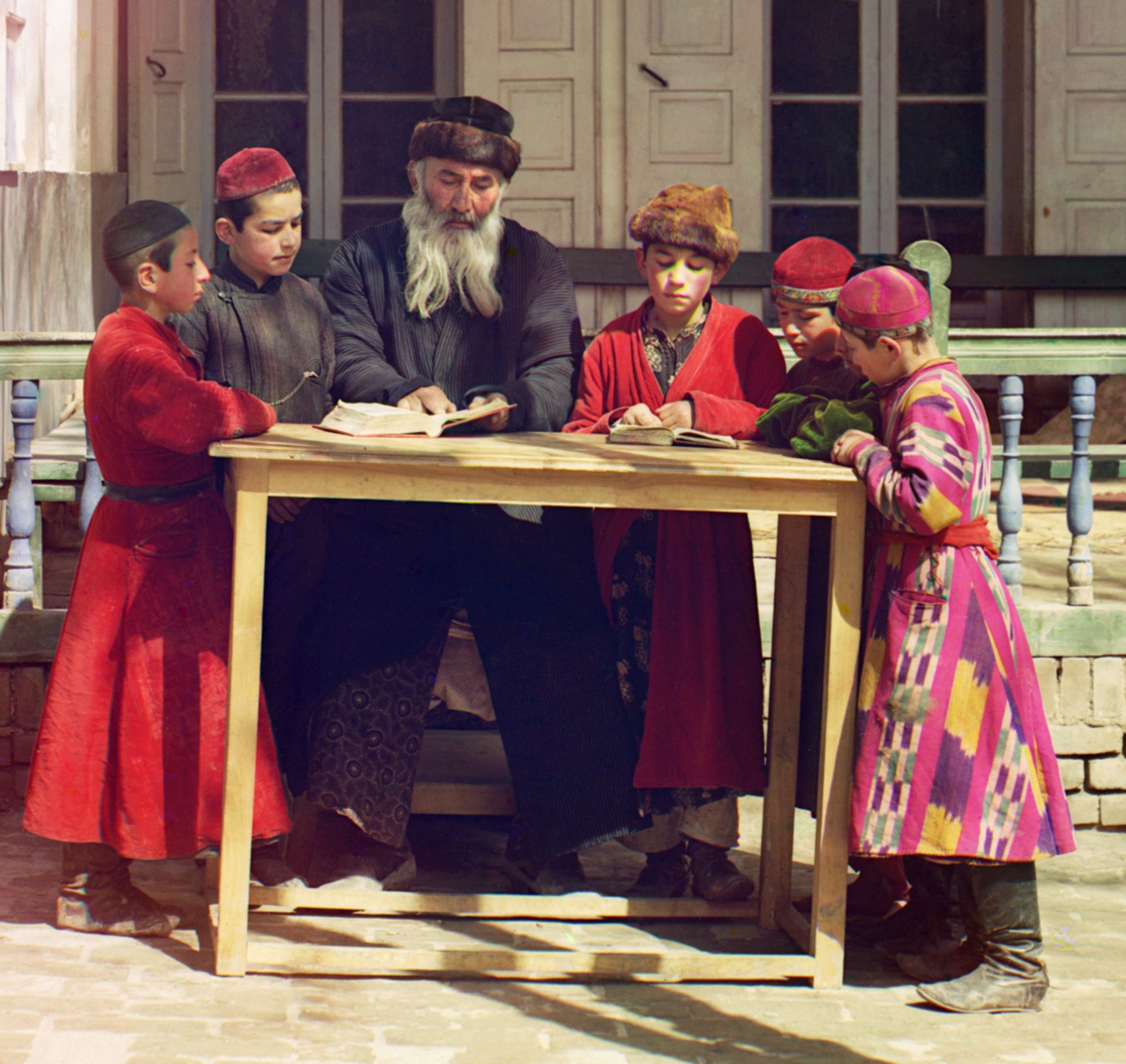Uzbek Jews on:
[Wikipedia]
[Google]
[Amazon]
 The history of the Jews in Uzbekistan refers to the history of two distinct communities; the more religious and traditional Bukharan Jewish community and the
The history of the Jews in Uzbekistan refers to the history of two distinct communities; the more religious and traditional Bukharan Jewish community and the
JTA
 The history of the Jews in Uzbekistan refers to the history of two distinct communities; the more religious and traditional Bukharan Jewish community and the
The history of the Jews in Uzbekistan refers to the history of two distinct communities; the more religious and traditional Bukharan Jewish community and the Ashkenazi
Ashkenazi Jews ( ; also known as Ashkenazic Jews or Ashkenazim) form a distinct subgroup of the Jewish diaspora, that Ethnogenesis, emerged in the Holy Roman Empire around the end of the first millennium Common era, CE. They traditionally spe ...
community, most of whom who migrated during Soviet times.
There were 94,900 Jew
Jews (, , ), or the Jewish people, are an ethnoreligious group and nation, originating from the Israelites of ancient Israel and Judah. They also traditionally adhere to Judaism. Jewish ethnicity, religion, and community are highly inte ...
s in Uzbekistan
, image_flag = Flag of Uzbekistan.svg
, image_coat = Emblem of Uzbekistan.svg
, symbol_type = Emblem of Uzbekistan, Emblem
, national_anthem = "State Anthem of Uzbekistan, State Anthem of the Republ ...
in 1989, but fewer than 10,000 remained in 2021 (around 38% of which lived in Tashkent
Tashkent (), also known as Toshkent, is the Capital city, capital and List of cities in Uzbekistan, largest city of Uzbekistan. It is the most populous city in Central Asia, with a population of more than 3 million people as of April 1, 2024. I ...
). Most of the remaining Jews are Ashkenazi
Ashkenazi Jews ( ; also known as Ashkenazic Jews or Ashkenazim) form a distinct subgroup of the Jewish diaspora, that Ethnogenesis, emerged in the Holy Roman Empire around the end of the first millennium Common era, CE. They traditionally spe ...
.
There are 12 synagogue
A synagogue, also called a shul or a temple, is a place of worship for Jews and Samaritans. It is a place for prayer (the main sanctuary and sometimes smaller chapels) where Jews attend religious services or special ceremonies such as wed ...
s in Uzbekistan.Uzbek Jewish worriesJTA
Fergana Jewish community
Semyon Abdurakhmanov is the head of theFergana
Fergana ( uz-Latn-Cyrl, Fargʻona, Фарғона, ), () or Ferghana, also Farghana is a district-level city and the capital of Fergana Region in eastern Uzbekistan. Fergana is about 320 km east of Tashkent, about 75 km southwest of A ...
Jewish community. There are six synagogues in the Valley. There are several hundred Jews in Fergana, Namangan
Namangan is a district-level city in eastern Uzbekistan. It is the administrative, economic, and cultural center of Namangan Region. Namangan is located in the northern edge of the Fergana Valley, less than 30 km from the Kyrgyzstan border ...
, and Kokand, with about 1,300 total in the area. Abdurakhmanov has said that the biggest problem faced by the Jewish Uzbek community is the economy.
During the Andijan Massacre in May 2005, the Israeli Embassy in Tashkent asked Abdurakhmanov to make a list of Jews "in case there will be a need to airlift people to Israel
Israel, officially the State of Israel, is a country in West Asia. It Borders of Israel, shares borders with Lebanon to the north, Syria to the north-east, Jordan to the east, Egypt to the south-west, and the Mediterranean Sea to the west. Isr ...
".
Historical demographics
The Jewish population of Uzbekistan (then theUzbek SSR
The Uzbek Soviet Socialist Republic (, ), also known as Soviet Uzbekistan, the Uzbek SSR, UzSSR, or simply Uzbekistan and rarely Uzbekia, was a union republic of the Soviet Union. It was governed by the Uzbek branch of the Soviet Communist P ...
) nearly tripled between 1926 and 1970, then slowly declined between 1970 and 1989, followed by a much more rapid decline since 1989, when the collapse of Communism
The revolutions of 1989, also known as the Fall of Communism, were a revolutionary wave of liberal democracy movements that resulted in the collapse of most Marxist–Leninist governments in the Eastern Bloc and other parts of the world. Th ...
began. According to the Soviet census, there were 103,000 Jews in Uzbekistan in 1970.
Between 1989 and 2021, around ninety percent of Uzbekistan's Jewish population left Uzbekistan and moved to other countries, mostly to Israel.
In the 2021 census, there were almost 10,000 Jews in Uzbekistan, diffused over the country. Over 1,000 were in Bukhara, and almost 1,500 were in Samarkand; around 1,300 were in Fergana, and over 3,700 were in Tashkent. The remaining 2,300 were spread around the country in smaller numbers. Most of the remaining Jews are Ashkenazi
Ashkenazi Jews ( ; also known as Ashkenazic Jews or Ashkenazim) form a distinct subgroup of the Jewish diaspora, that Ethnogenesis, emerged in the Holy Roman Empire around the end of the first millennium Common era, CE. They traditionally spe ...
.
In July 2020, Absolute Business Trade sought to demolish Ashkenazi Synagogue of Tashkent, the oldest functioning Ashkenazi synagogue, for a luxury apartment complex. The company filed a lawsuit against the Jewish Ashkenazi Community of Tashkent, alleging it was "illegally occupying" the site, which had been purchased by Golden House. Orient Group, the parent company of Absolute Business Trade and Golden House, offered to construct a new synagogue for the community, who declined the proposal. Tashkent's then-mayor, Rakhmonbek Usmanov, assured that the synagogue would not be evicted but had left the position. At a hearing in August, Absolute Business Trade withdrew its lawsuit in response to international outcry.
See also
* History of the Jews in Central AsiaReferences
{{Asia in topic, History of the Jews in